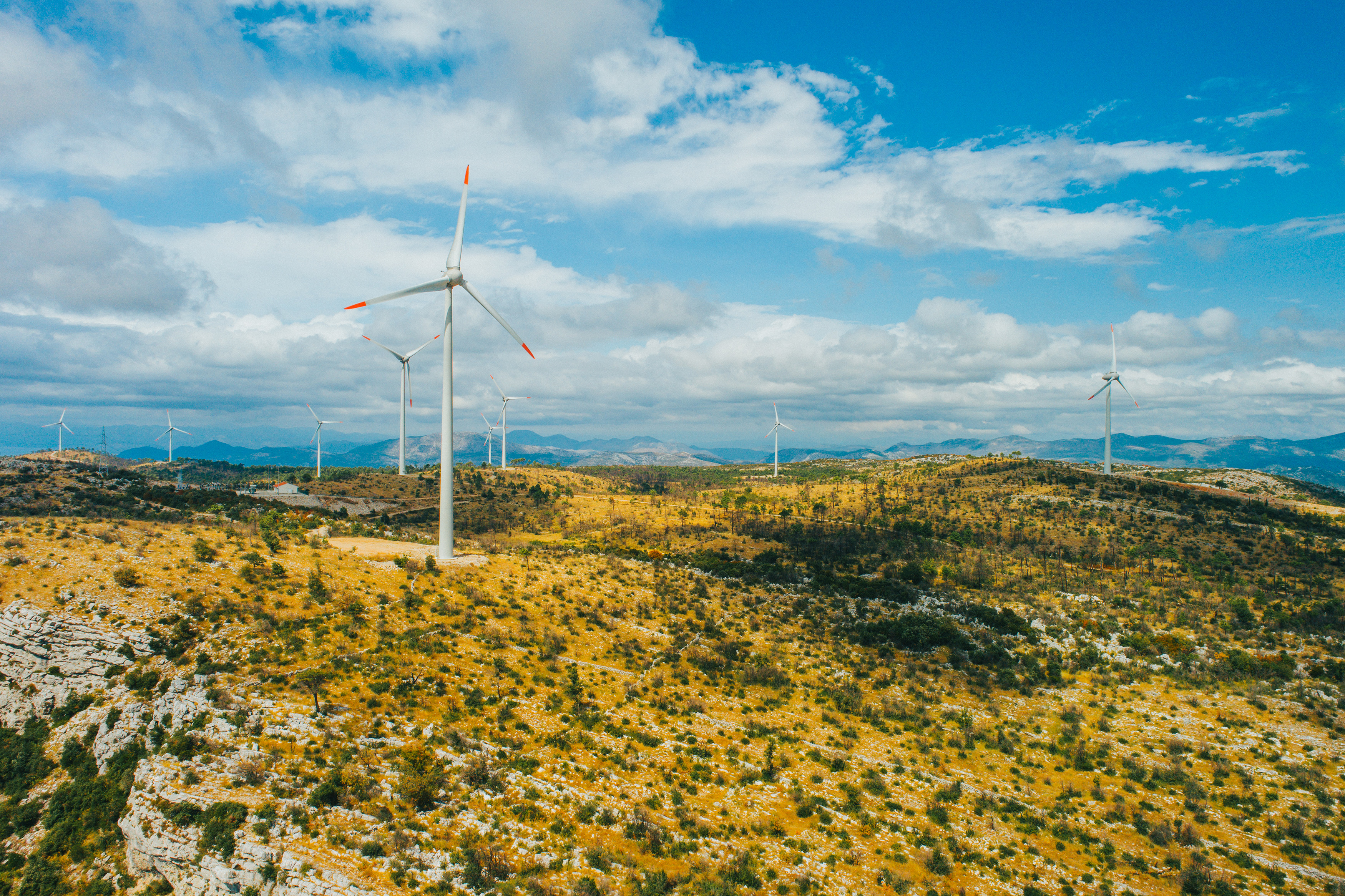The Nature Conservancy and Croatian Ministry of Economy and Sustainable Development Collaborate to Assess Renewables Impacts on Sensitive Wild Species
Memorandum of Understanding formalizes collaborative efforts, recognizing importance of sustainable development and conservation of natural resources
Media Contacts
-
Barbara Kuznik
The Nature Conservancy (Europe)
Email: barbara.kuznik@tnc.org
The Nature Conservancy and the Croatian Ministry of Economy and Sustainable Development have signed a Memorandum of Understanding (MOU) to formalize a collaborative effort to assess the impact of renewable energy on sensitive wildlife species in Croatia. This partnership recognizes the importance of sustainable development and conservation of natural resources in Croatia.
Croatia has exceptional natural beauty and biodiversity, as well as significant wind, and solar energy potential. Renewable energy historically plays an important role in the national energy supply, with solar and wind capacities becoming increasingly important in the energy transition towards climate neutrality. However, valuable areas of nature in Croatia sometimes overlap with the areas with high solar and wind energy potential, which may lead to land use conflicts. This can potentially endanger biodiversity and ecosystem services in addition to delaying permits for energy projects.
The MOU outlines a plan for the two organizations to work together to identify wildlife species that could likely be affected by renewable energy development and where these species may occur. The goal is to create models that estimate habitat and corridors for these sensitive species in order to protect their populations and ensure their long-term survival, as well as minimize the impact on ecosystem services.
"Renewable energy is a critical component of Croatia's energy transition and is essential for achieving our climate and energy goals," said Aljoša Duplić, Director of the Institute for Environment and Nature at the Croatian Ministry of Economy and Sustainable Development. "At the same time, we are committed to preserving and improving the country's unique natural heritage. This collaboration with The Nature Conservancy will contribute to reaching both of these objectives in a sustainable manner."
"We are thrilled to be partnering with the Croatian Ministry of Economy and Sustainable Development to assess the impact of renewable energy development on sensitive wildlife species in Croatia," said Dragana Mileusnić, Southeast Europe Program Director at The Nature Conservancy (TNC). "By working together, we can ensure that renewable energy development is carried out in a way that protects and enhances Croatia's natural habitat while also supporting the country's transition to a low-carbon economy.
TNC experts will develop a framework to assess the risk of renewable energy projects affecting wildlife in Croatia. This will include a geoportal with modeled species distributions, allowing developers to anticipate potential conflicts and examine specific species distribution models, and also check locations for the presence of wildlife.
This work will further establish a solid scientific foundation for the designation of Renewables Acceleration Areas in Croatia, as required by the recently agreed EU Renewable Energy Directive as part of the RepowerEU package. It has strong potential to provide early best practice examples for the EU-wide implementation of these new policies across Europe. The project includes a transfer of knowledge to Croatian experts from the relevant Ministries and the wider scientific community in order to properly utilize and further develop the data and models produced.
This extensive project is being carried out in collaboration with the Energy Institute Hrvoje Požar, building upon previous experiences from Zadar County, Croatia.
This Memorandum of Understanding is an important step towards promoting sustainable development and conservation in Croatia. Through this partnership, The Nature Conservancy and the Croatian Ministry of Economy and Sustainable Development will collaborate to create innovative solutions that balance the needs of wildlife and the environment with the demands of energy production. This is part of a series of agreements with governments and competent authorities in South East Europe, aimed at accelerating the development of renewable energy sources.
For more information about The Nature Conservancy and its work, please click here.
The Nature Conservancy is a global conservation organization dedicated to conserving the lands and waters on which all life depends. Guided by science, we create innovative, on-the-ground solutions to our world’s toughest challenges so that nature and people can thrive together. We are tackling climate change, conserving lands, waters and oceans at an unprecedented scale, providing food and water sustainably and helping make cities more sustainable. The Nature Conservancy is working to make a lasting difference around the world in 81 countries and territories (40 by direct conservation impact and 41 through partners) through a collaborative approach that engages local communities, governments, the private sector, and other partners. To learn more, visit nature.org or follow @nature_press on X.
